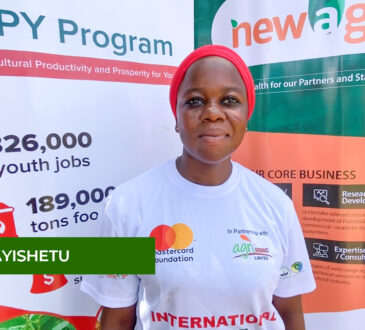
The hybrid workplace has become a staple in the post-pandemic world, and Ghana is no exception. As companies adapt to a new working landscape, balancing remote work with office presence, the need for robust IT systems is more critical than ever. With many organizations in Ghana embracing flexible work models, it’s essential to have the right technology to support employees, whether they are at home or in the office.
The rise of hybrid work in Ghana
Hybrid work, which combines remote and in-office work, offers employees flexibility while maintaining productivity. However, to ensure this model’s success, companies need to invest in technologies that provide seamless experiences for all workers, regardless of location. Key to this approach are three essential IT systems: communication and collaboration tools, cloud computing solutions, and cybersecurity measures.
Communication and collaboration: keeping teams connected
Effective communication is the backbone of any successful hybrid workplace. When employees aren’t in the office every day, maintaining clear and open lines of communication becomes vital. Companies in Ghana need to ensure that remote workers feel just as connected and informed as those who are physically present.
- Instant messaging platforms: Platforms like Microsoft Teams, Slack, and WhatsApp Business enable employees to communicate instantly, fostering a sense of connectivity across teams. These tools are not just for work—they also allow employees to recreate the social atmosphere of the office, which can be crucial for morale.
- Video conferencing software: Video conferencing has transformed how businesses operate, enabling face-to-face interactions without the need for travel. This is particularly valuable in Ghana, where companies can connect with clients and partners locally and internationally, reducing costs and improving efficiency. Microsoft Teams and Zoom are popular choices that offer video, audio calls, and instant messaging in one platform.
- Document management and collaboration: Tools like Microsoft SharePoint and Google Workspace facilitate real-time collaboration, allowing multiple users to work on the same document simultaneously. These platforms help streamline project management and ensure that everyone, whether at home or in the office, has access to the latest information.
Cloud computing: the backbone of hybrid work
Cloud computing has revolutionized the way businesses operate, providing the infrastructure needed for hybrid work to thrive. Before cloud adoption, IT systems were confined to physical offices, making remote access cumbersome. Today, cloud solutions allow employees to access company resources from anywhere, making hybrid work not just possible but efficient.
- Cloud storage services: Cloud storage solutions like OneDrive and Google Drive enable employees to access and share files from any location. This is especially beneficial for collaboration, as it eliminates version control issues and ensures that the latest documents are always available. Cloud storage also offers enhanced security, as data is distributed across multiple servers.
- Virtual Desktop Infrastructure (VDI): VDI allows employees to access their work desktop from any device, providing a consistent experience regardless of location. Microsoft’s Azure Virtual Desktop, for example, offers a secure and scalable solution that keeps business data protected while enhancing user productivity.
- Cloud-based collaboration platforms: Platforms like Microsoft 365 integrate familiar tools such as Word, Excel, and PowerPoint into a single, cloud-based suite. This enables real-time collaboration, whether employees are working side-by-side in the office or miles apart at home.
Cybersecurity: protecting data in a hybrid world
As businesses in Ghana rely more on digital tools and remote access, cybersecurity becomes a critical concern. The increased dependence on technology brings new risks, including cyberattacks and data breaches. Therefore, investing in robust cybersecurity measures is essential to protect sensitive information and maintain compliance.
- Endpoint security solutions: These solutions protect devices that connect to the company network, safeguarding against unauthorized access and data leaks. For remote workers, endpoint security is vital, especially when connecting through public Wi-Fi or personal devices.
- Data Loss Prevention (DLP) Platforms: DLP systems monitor data transmission within the organization, preventing sensitive information from leaving the company. This is crucial in a hybrid environment, where employees may inadvertently expose data to unauthorized users. DLP platforms help ensure that data remains secure, whether stored in the cloud or accessed from remote devices.
Conclusion: building a future-ready workplace in Ghana
As hybrid work continues to shape the future of business in Ghana, companies must invest in the right IT systems to support their workforce. Communication and collaboration tools, cloud computing, and robust cybersecurity measures are not just nice-to-haves—they are essential components of a successful hybrid workplace. By embracing these technologies, Ghanaian businesses can enhance productivity, protect their data, and create a flexible work environment that meets the needs of today’s workforce.
Investing in these key IT systems will ensure that companies in Ghana are well-equipped to navigate the evolving work landscape, providing employees with the tools they need to thrive, no matter where they choose to work.
By Allen OLAYIWOLA
The writer is a seasoned cloud architect and systems administrator with expertise in leading technical teams to create innovative platforms. As CTO of eSolutions Consulting, he has spearheaded major projects like the Office 365 rollout for Ghana’s government and infrastructure deployment for the Ghana Revenue Authority. Recognized for his strategic use of emerging technologies, Allen has led his team to multiple Microsoft Partner of the Year awards, solidifying his role as a key leader in tech-driven business transformation. If you’d like to explore how these strategies can help your organization thrive, reach out to discuss tailored solutions for your business growth journey. He can be reached via allen@esolutionsghana.com and or 0540123034







